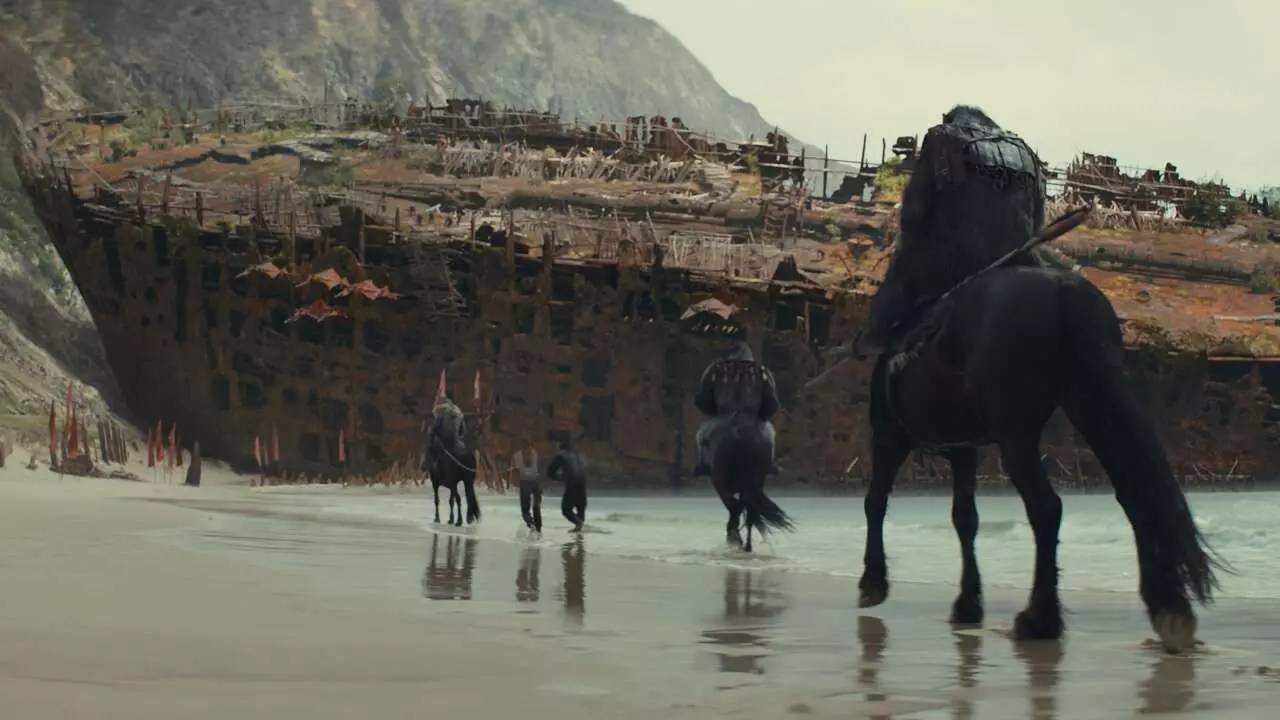The modern iteration of the Planet of the Apes series has reached an impressive milestone with the release of Kingdom of the Planet of the Apes, marking the franchise’s tenth film. This latest installment takes a significant leap forward in time, moving “many generations” ahead from the events of the previous movies. Director Wes Ball, known for his work on the Maze Runner films and the upcoming Legend of Zelda movie, aims to bring the series full circle by closing the franchise at the same point it began – with Charlton Heston’s iconic crash landing on future Earth in the original 1968 film.
Ball emphasizes that Kingdom of the Planet of the Apes signifies the start of a new era for the apes, rather than simply continuing the story from the previous three movies. While the earlier films focused on the downfall of humanity and the epic tale of Caesar, this latest installment aims to provide a fresh perspective for viewers. By introducing a new cast of characters who are unaware of Caesar’s legacy, Kingdom offers a unique opportunity for audiences to rediscover the world that has evolved since the apes rose to power.
One of the most intriguing aspects of Kingdom is the exploration of various ape groups developing their own civilizations independently. Ball sees this concept as a captivating canvas on which to build the narrative of the film. The introduction of characters like Noa and her tribe adds depth to the ape society, showcasing their diversity and cultural evolution. As the story moves away from the Caesar trilogy, Ball keeps the ultimate goal in mind – leading the audience towards the events of the original 1968 movie.
While Ball acknowledges that reaching the endpoint of the original film may be a distant goal, he remains hopeful for the future of the franchise. The idea of gradually building up to the events of the 1968 movie without outright remaking it intrigues him. The gradual development of the apes, including their eventual adoption of clothes, is a crucial step in moving towards the classic portrayal of the characters. Through subtle hints in Kingdom, such as the adornments worn by Raka and the evolving fashion choices of Proximus Caesar, the film sets the stage for the apes’ eventual transformation.
Although Ball’s vision for the franchise’s future may still be uncertain, his commitment to honoring the legacy of the original films is palpable. The potential for exploring new stories and expanding the ape civilization before reaching the iconic crash landing scene adds an exciting layer of depth to the series. As Kingdom of the Planet of the Apes sets the stage for future developments, audiences can look forward to a journey that continues to push the boundaries of the beloved sci-fi saga.


Leave a Reply